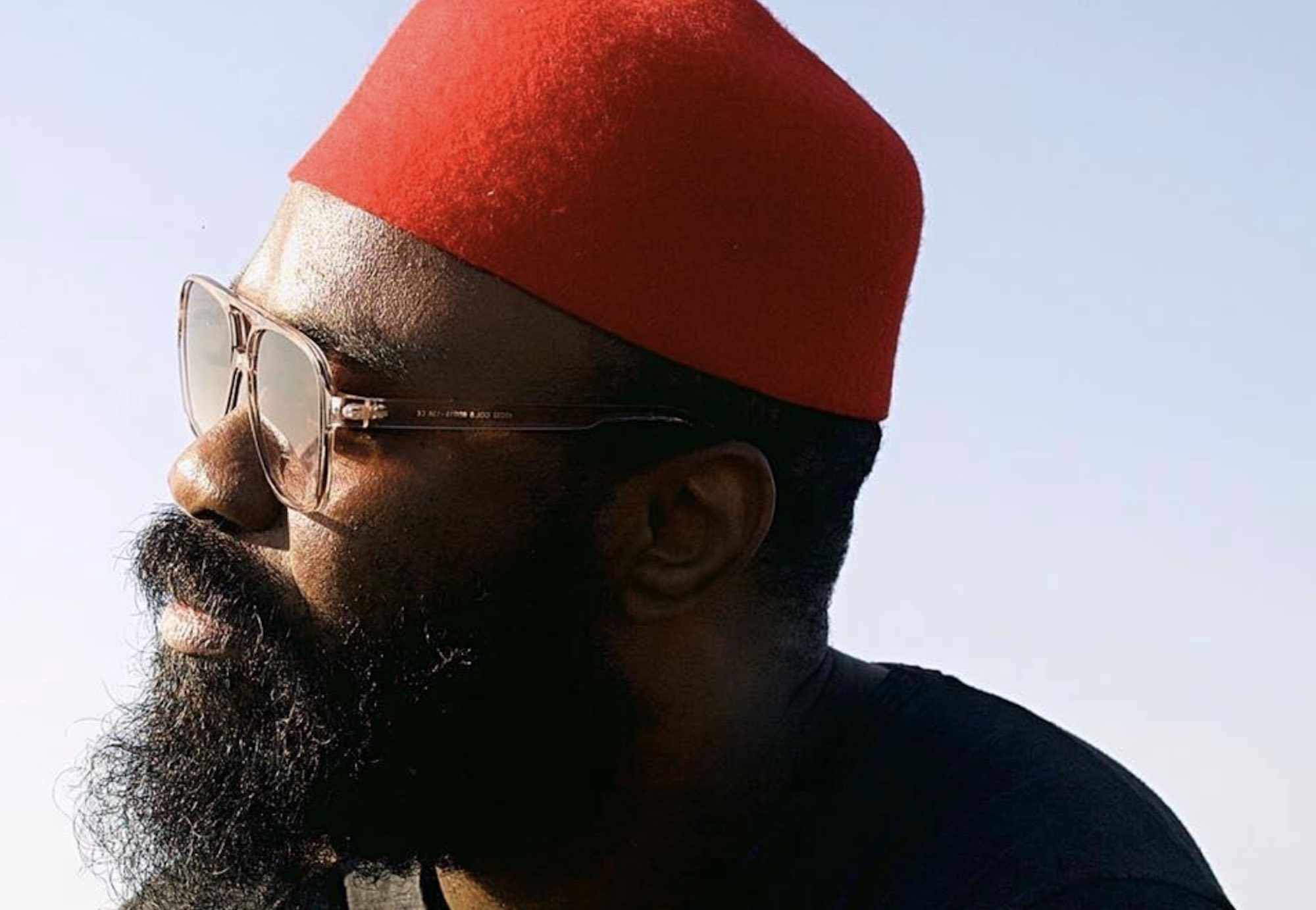Musician, improviser, healer, and academic Nduduzo Makhathini’s freshly-inked deal with the America-based Blue Note Records label heralds a new phase in the quest for the current wave of South African jazz musicians’ global conquest. We spoke to him on the back of the release of his tenth studio album, Modes of Communication: Letters from the Underworlds.
Photo credit: Ezra Makgope
“I believe in magic, man” said Nduduzo Makhathini once. The pianist, composer and healer uttered these words in 2014 while on a break during the recording sessions for the singer/songwriter Msaki’s debut album, Zaneliza: How The Water Moves, an album he co-produced. That was also the year he pounced upon the world with two records – the debut, Sketches of Tomorrow, and its follow-up, Mother Tongue.
By then, nearly two years had elapsed since he graced the keys on bra Herbie Tšoaeli’s African Time, still one of the most important contributions to the South African jazz songbook. That album let him flex his brain muscles, and allowed him to tap into the church rhythms and the blues tradition of his childhood. The results were stellar, a tour de force by any standard. The two solo exploits marked a clean break from his work as a sideman, though he still keeps certain gigs, such as being a part of Herbie Tšoaeli’s African Time unit, and bra Feya Faku’s quartet.
Little did anyone on the peripheries know that by 2020, Makhathini would be a widely revered jazzman, and the first South African artist to ink a recording deal with the esteemed Blue Note Records label, once home to his spiritual teacher and mentor, McCoy Tyner, who sadly departed from the world of the living in early March.
Modes of Communication: Letters from the Underworlds, recorded at the SABC’s renowned M2 studios, is Makhathini reckoning with his calling as a healer, something he first became aware of in his childhood. “When I was given the gift from a young age, it was given through water. According to how people read it, I actually drowned,” says Makhathini. He continues: “The elders in the village said ‘It’s impossible for someone to drown for a long period of time, and come back with an empty tummy.’ So already, at that point, I was taken to the underworlds. So this record is my second visit to the underworlds.”
The album features expert playing from a dream team of musicians. Young kings Linda Sikhakhane and Ndabo Zulu, on tenor sax and trumpet/flugelhorn respectively, join long-time Makhathini collaborator Ayanda Sikade (drums), the percussionist – and frequent collaborator – Gontse Makgene, the stateside kinship of Logan Richardson (alto sax), and bassist Zwelakhe-Duma Bell le Pere, who has also collaborated with Makhathini on previous works. The line-up is buoyed by Omagugu Makhathini, Msaki, and MXO on vocals.
Omagugu is Makhathini’s wife and musical confident. According to him: “[Omagugu] linked me up with ubab’ uThemba Mkhize, and Mbuso Khoza. I didn’t know all of these people. She was working with all of them before. When I started this production thing, ubab’ uMkhize gave me a lot of opportunities to produce for Mbuso Khoza, to produce for Lindiwe Maxolo. She became a bridge to a lot of things, especially the Joburg scene,” he says. “Yehlisan’umoya”, on which she appears, and which is one of the three lead singles to his forthcoming album — the other two being “Indawu” and “Beneath the Earth” (w/ Msaki) — is also a spiritual tribute to Busi Mhlongo, the dynamic titan who sung a similarly-titled song on her highly influential ’99 album, Urban Zulu. It’s also no coincidence that Makhathini got to play on Amakholwa, her final offering before departing in 2010.

Makhathini’s record gets released in early April. There was supposed to be a US tour in its wake but, like many musicians, those plans have been derailed by the COVID-19 pandemic which has been particularly devastating to the arts community.
“I had so many plans but the universe is presenting a new plan and I have accepted,” he shared on his Facebook. He expanded on this during a television interview: “Unfortunately with what’s happening around the world now, I’m unable to go to the US to do the tour for the album. But in many ways, as I sit here at home and reflect […] the music in itself is the thing that speaks. So sometimes, I don’t think the music really needs us once it’s recorded. I’m partly just accepting that the music will have to speak, and I won’t be there in my physical body to present it.“
Come what may, the music shall travel. The South African jazz landscape has lost formidable players in the past few years, the likes of Hugh Masekela and Phillip Tabane, but suffice to say, the mantle is being passed on gracefully through artists such as Makhathini and his ilk.
Modes of Communication: Letters from the Underworlds is available here.


